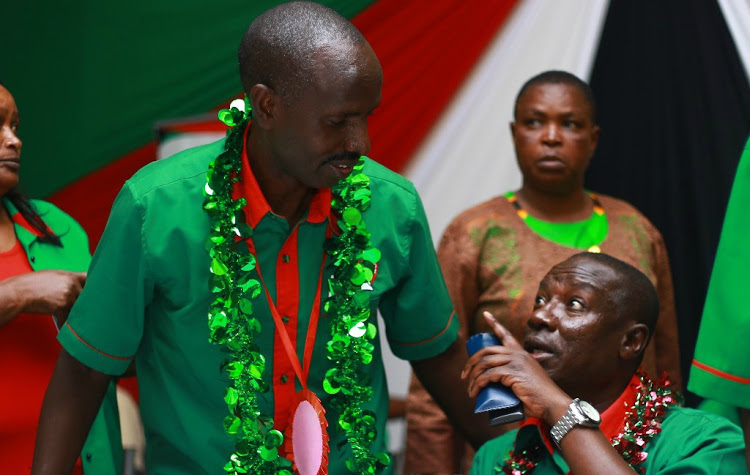Hesbon Otieno, the deputy secretary general of the Kenya National Union of Teachers (KNUT), has explained why the teachers' unions and their employer, the Teachers Service Commission (TSC), are at odds over a proposal to amend the TSC Act.
In an interview with Citizen TV on Wednesday, Otieno bemoaned the proposed amendments, claiming they aimed to gag Kenyan teachers and turn the TSC into an autocratic employer.
"This document is supposed to serve several purposes. The people who are directly affected are the players in the field, that is, the teacher and employer," he argued.

"If you see TSC apportioning itself a lot of rule over the teacher in terms of disciplining the teacher based on evidence that is not well factored."
Did you read this?
Otieno claims that TSC, in collaboration with the Salaries and Remuneration Commission (SRC), seeks to grant itself the authority to set the salary scale for teachers.
He contended that the initiative would take away teachers' ability to bargain.
Nabii Nabwera, a Lugari Member of Parliament (MP), expressed his opinion that it may get out of control if the dispute is not resolved appropriately and amicably.
"What we are seeing is a personality conflict which is now being imported to the architecture of the management of the education sector and it may cause a lot of problems," he said.
This occurs amid a dispute between the TSC, KNUT, and the Kenya Union of Post-Primary Education Teachers (KUPPET) regarding proposed legislation changes.
.jpg)
TSC invited education stakeholders to a public participation meeting on proposed amendments last week. However, Collins Oyoo, the secretary general of KNUT, announced that the organization would not be present, citing the proposed changes as punitive to teachers.
"We are not ready to be scolded anymore," he said at a media briefing.
KUPPET SG Akelo Misori charged that the TSC was pursuing power struggles rather than tackling the real issues plaguing the education system.
"You act bossy, yet it is we who created you. If you did not exist under the Constitution, you would be nowhere; therefore, we are not coming here because of any fear," he said.









